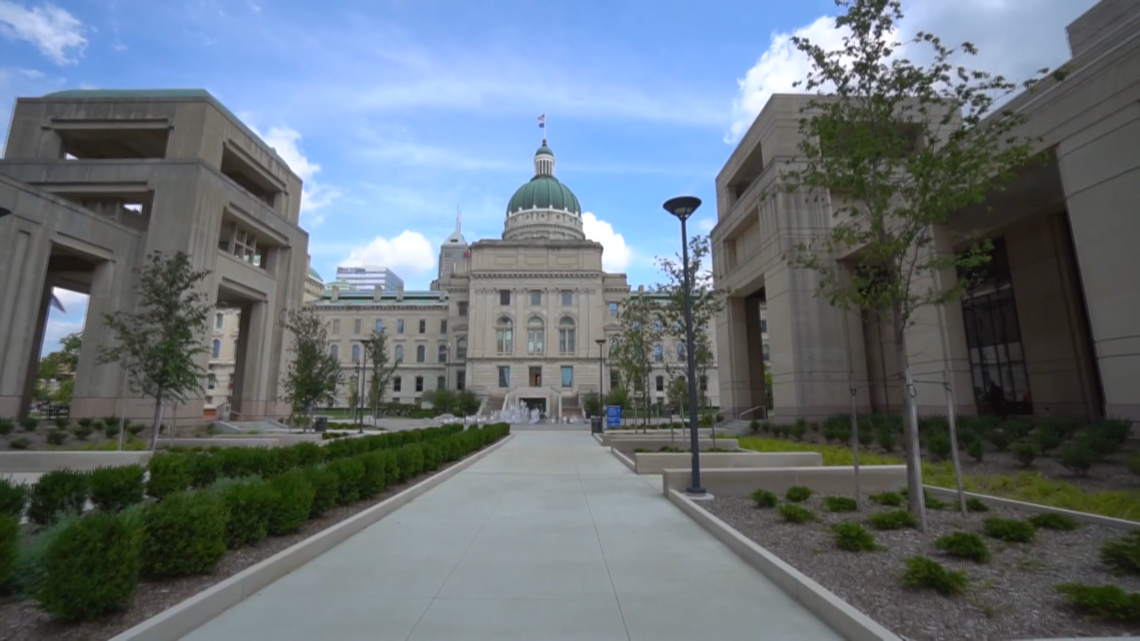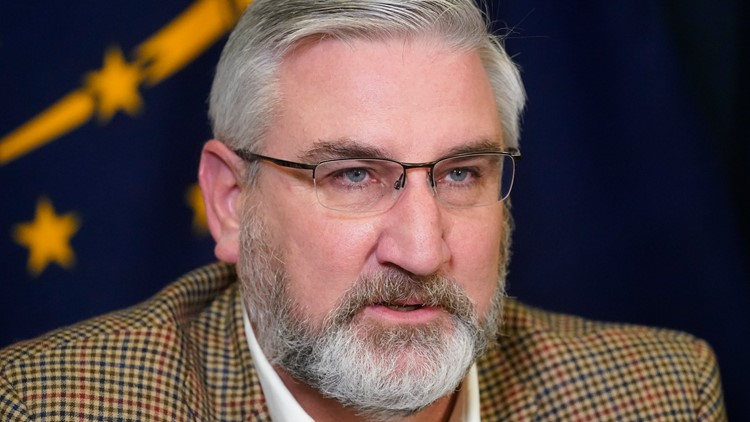INDIANAPOLIS — During the television age of Indiana politics, the General Assembly had been a pipeline of future governors. Govs. Harold Handley, Matt Welsh, Edgar Whitcomb, Doc Bowen, Robert Orr and Frank O’Bannon had all spent time in the dual “Cave of Winds” on the Statehouse third floor during a 40-year span.
But five out of the last six governors had arrived at power via other routes, whether it was Secretary of State Evan Bayh, Lt. Gov. Joe Kernan (a former mayor of South Bend), White House Budget Director Mitch Daniels, Congressman Mike Pence or Lt. Gov. Eric Holcomb. As I look out over the current General Assembly roster, only a handful appear to have the resume and a feel for the people’s pulse needed for the job, as well as a penchant for leadership.
This is relevant now because the gubernatorial power is being challenged a year into the current COVID-19 pandemic. At least two bills - House Bill 1123 and Senate Bill 407 - are in play during the final three weeks of the current session that would clip the governor’s authority. HB 1123 (now Senate Bill 5) would allow for the General Assembly’s Legislative Council to convene a special session to deal with an emergency. It would provide for businesses and individuals to appeal any “enforcement action” taken by local health departments during emergencies.
A provision in HB 1123 that would prohibit state and local orders to restrict religious gatherings was added to yet another bill, Senate Bill 263.
Gov. Holcomb was asked what he would do if such an engrossed act would reached his desk. “I cannot skirt my duty and do something that I believe is unconstitutional,” Holcomb said at his weekly pandemic press conference Wednesday. “So yes, I can answer your question with four letters, and it’s V-E-T-O.”
Under this scenario, the final bill emerging from a conference committee will be quickly passed, Gov. Holcomb will veto, and the General Assembly will override with a simple majority. Then, it will be kicked to the courts to decide its constitutionality.
Former Indiana Supreme Court Justice Frank Sullivan Jr. told the Senate Rules Committee under the control of Senate President Pro Tem Rod Bray last month, SB 407 would violate the Indiana Supreme Court’s long-standing precedent that it is unconstitutional for one branch of government to subject another branch to its “coercive influence.”
Sullivan added, “If the governor’s power to handle emergencies needs to be reduced, do it in a way that the Constitution permits. You have plenty of options in that regard. And if you decide that the Legislature does need power that the Constitution does not now give it, the right way to do that is by a constitutional amendment, not an unconstitutional bill.”


“I’ve made no secret about my understanding of Indiana’s Constitution,” Holcomb said. “I have viewed this with the belief that this is unconstitutional. We have supplied our legislative friends with background. There is an honest difference of opinion. They honestly believe otherwise. I’m left with no other alternative. I believe I am duty bound by the constitution first and foremost. I can’t do an end-around the people.”
Holcomb said that he is not “in complete disagreement” with the motives House and Senate Republicans led by House Majority Leader Matt Lehman and State Sen. Sue Glick had for the legislation. But the General Assembly is seeking a quick fix, when a more deliberate approach is required.
“I believe, for example, the funding coming into the state of Indiana, it is beyond understandable; it is to be expected that we work together, and they be updated,” Holcomb said of the more than $5 billion coming to the state via President Joe Biden’s American Relief Act passed by Congress in March. “We’ve been doing that over the past year with letters and phone calls from legislators, sitting down at the table and going over on more than one occasion when we weren’t in session.”
Holcomb said he asked leadership if they wanted to be in special session periodically over the past year. “The answer was no,” he said.
The governor has taken some heat after his statewide address last week after shifting the state’s mask mandate to an advisory beginning April 6. He left it in the hands of local governments to determine whether they wanted to keep the mandate in place. At least four counties (Marion, Monroe, St. Joseph, Huntington) have said they will continue local mask orders.
Holcomb added, “It’s taken months to arrive at where we are right now, and we didn’t have months to make decisions.” The decision to shut down the state in March 2020 in order to keep medical systems from becoming swamped had to be made in days, if not hours. That's why competent, inclusive executive leadership is important.
Hoosiers have witnessed three administrations - the Trump and Biden presidencies and the Holcomb governorship - deal with this unprecedented pandemic that has killed 550,000 nationally and 13,000 statewide. On Nov. 3, more than 1.7 million Hoosiers, or 56.5% of voters, decided to send Gov. Holcomb back for a second term in a race waged against a former state health commissioner. President Trump lost his reelection bid by 7 million votes, and by a 306-223 Electoral College verdict, to Biden.
The columnist is publisher of Howey Politics Indiana at www.howeypolitics.com. Find Howey on Facebook and Twitter @hwypol.



